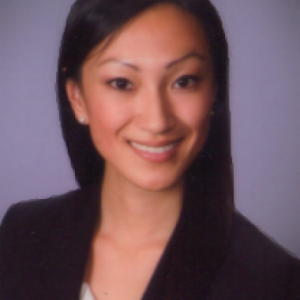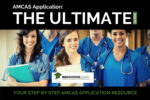
 Dr. Alice Zheng is a entrepreneur, physician, public health activist and MBA! She received her MBA from Harvard University and MD from University of Michigan. She is an incredible person who is an inspiration for all who want to become a physician, and maybe even more. We sat down and talked with her about her journey through medical school.
Dr. Alice Zheng is a entrepreneur, physician, public health activist and MBA! She received her MBA from Harvard University and MD from University of Michigan. She is an incredible person who is an inspiration for all who want to become a physician, and maybe even more. We sat down and talked with her about her journey through medical school.
Q: What kept you going throughout your medical school application process, was there any specific motivation or any factor that constantly kept motivating you?
A: I think remembering the end goal, there are definitely many challenges along the way but I think it’s very important for all pre-med students to remember that this is a very long journey; so you start out very early, picking your course work and looking for research advisors. The application process is tiring but it’s just another part of the journey because when you get into medical school, you do a lot of soul searching; you are going to think a lot about what you want to do in your future life. I think sometimes pre-meds feel like medicine is an end to itself but it’s actually an entry way to a bigger path because medicine is not just one type, one path; once you are in medicine, there are so many choices and so many options.
Medicine is not an end to itself but actually an entry way to a bigger path; it is not just one type, one path, there are so many choices and so many options.”
You choose a speciality or choose what kind of practice setting you want to be in. Even beyond that, some people end up in jobs in medicine where they might do some journalism on the side, they might do some policy work. So there are just endless options.
Q: Along those lines, can you tell us a few surprises that you found out about when you went to med school? Was there anything that you feel you should have known about or anything you feel like you could have been better prepared for?
A: I think a lot of teamwork and leadership is needed in the career of medicine and it can be a difficult adjustment for some students because they spend their whole undergraduate career excelling in science or their chosen major, but mostly its individual work. So you study for your exam, you write your essay and it’s more or less individual, maybe some of the research is collaborative but you still have your own piece of work cut out. Even in the first two years of medical school there is individual work, so you are sitting in a lecture, you are in the anatomy lab and you are studying for an exam and you know the output you get is based on individual work. But you are in a team, with other medical students, other residents, attending doctors and nurses. So I think that can be an adjustment to some pre-meds who have never worked in the real world. You can’t do your job without the nurse doing his or her job. Make sure you understand dynamics and how to work well in a team and ultimately, one day you will lead the team and you will be the attending doctor. I think that is something that is overlooked when you are a pre-med because you are just focused on your individual achievement, because that’s how you get in. More and more medical schools now have essays on team work and questions about leadership; they do MMI interviews to assess how you deal with difficult situations because it’s no longer about how well you do in exams, It’s about using your skills in medicine but more importantly it’s about working in a team and being a leader.
Q: Great! That’s the perfect segway into my next question. What do you think are three skills that pre-med students should develop early on in their education? Are there any soft or hard skills you think they should definitely have?
A: Sure, one thing I would say is resilience. Medicine is very hard, the application process is very hard, so once you get in there you are constantly being tested, you are memorizing things and then you have to give the board exams. You have to literally study for twelve hours a day for six weeks to get through that and then when you are on the ward it is very challenging because you are learning medicine, getting graded, you are getting self-examined. So a common thing in all of this is the need for resilience in a way to deal with failures, because there are moments where you will feel like you have failed when you are studying for medicine. So you don’t want to drive yourself to a point where you are very unhappy or you are not succeeding because you are overwhelmed. There will be someone who is going to give you a bad evaluation that you will feel is unfair, or there will be that one exam that you studied so hard for but didn’t do well on but it’s important to bounce back and recover. You have excelled your whole life, but now you are going to be among other people who excel, so you will no longer be the best. Having the emotional capacity to handle that I think is really really important.
A key skill to develop is resilience. There will be someone who is going to give you a bad evaluation that you will feel is unfair, or there will be that one exam that you studied so hard for but didn’t do well on but it’s important to bounce back and recover.
The other category of skill is related to how medicine is changing, it’s not just about myopically being a doctor and caring about the treatments and diagnosis, but trying to understand how the world fits together, because in the future people will be asking you your thoughts about policies around the world and inequalities and things. It’s that ability as a doctor I feel that has expanded beyond the clinical. Doctors can be advocates for their patients, doctors also play a big role in health economics, because they are the one prescribing treatments so being kind of aware of how the different parts society fits together I think is really important. One can get that by being well read on current affairs and health care, taking some time off before medicine and getting some work experience. I think those are all great things that develop maturity as well as a broader understanding of the world.
Q: So when you actually get down to the process of applying and writing your personal statements, is there anything that you suggest students not do when they are applying or when you are in the process of application?
A: Sure, so one thing you should never do, is never talk about academic failures or not getting into medical school. For questions about adversities, overcoming your failures, or challenge, you should never write about those things. Although those are often sometimes very formative experiences that were very difficult, I completely understand that can be very top of mind, but that should not be the topic of these questions. Now, if that does happen to you where you had academic problems or difficulties, you didn’t get into medical school in the past, that’s totally fine. Many people reapply and they succeed, but there will be a place in the application to write about it separately, where they specifically will ask whether you have had any academic difficulties, you’re a re-applicant and there, that’s where you can be very honest about what happened and you can appear very vulnerable. You can be like that and then write about how you have changed and grown, but you don’t want to write about that unless they ask for it.
Q: Alright. Is there anything else? Maybe that you can think of now at the top of your mind?
A: Yes, so something I tell my students when they write their personal statements is that to think big and be visionary, so when you are writing your personal statement you want to say why medicine, you want to talk a little bit about yourself, your values, your background but what you are really trying to convey is that you will be a leader in healthcare and maybe your interests are in primary care, maybe it’s in global health, maybe it’s in research, whatever it is, when you conclude your essay and throughout your essay, you goal is convince the admission committee that you have this burning passion to change things, to be the best physician possible and that you have a bigger vision that you want to be some sort of leader. This is especially true for the students who want to get into the very top schools, it’s not enough just to do research, just to do volunteering, and then kind of list them methodically, on your application. It’s about why you did those things, and how you grew from them and how that contributed to you being a leader in the future with this expandable world view and this repertoire of experiences.
Q: You put that really well. I think it’s all about commitment towards a certain service or just about how you are dedicated towards serving people in general and what clearly motivates you. So then again, is there anything in particular that you are looking for in prospective students?
A: Yes, similar to what I just mentioned for the essay. When you are interviewing you are also trying to convey your broad vision, your visionary thinking about the future. So when you answer questions about, tell me about yourself, you can start with something meaningful, your prior background but you always want to end it with something about what you hope to accomplish, or what you hope to do. You know again, with the theme of medicine not being the end to itself but a means to something greater.











